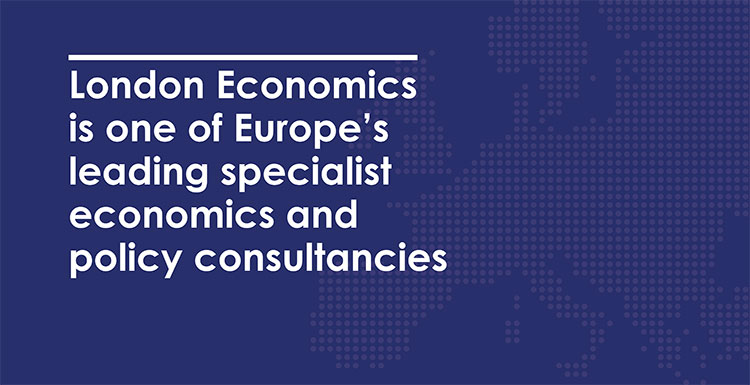A report from London Economics
The report
Australia’s Group of Eight universities contributed $66.4 billion to the national economy in a single year through the flow on effects of their research, graduates, international students and employment, a new report has found.
The report from London Economics also reveals that for every $1 spent on research, around $10 came back in benefits to the private sector.
It found that for every person employed in Go8 universities, 2.4 jobs were created in the broader community and that for every three international students studying at a Go8 institution, there was $1 million flow on effects in the economy.
“It’s the first time we have been able to clearly articulate what we have always known: that universities are economic powerhouses and a valuable investment for taxpayers,” says Go8 Chief Executive Vicki Thomson.
“We always knew, for example, that our research income was a strong positive for the nation. What we did not know was the actual worth. This analysis shows it is extremely high with every $1 delivering almost $10 in benefits in a single year for the private sector.”
Professor Ian Jacobs, Chair of the Go8 and UNSW Vice-Chancellor says the report is further evidence that funding for our universities is not a burden or a charitable donation. “It is a wise investment in the future of the nation which yields substantial economic return alongside many other benefits for the people of Australia. The scale of the economic benefit explained in the report will surprise some and be of interest to many in government, industry and higher education”.
Read the full report here
VC Views

The London economics report is further evidence that funding for our universities is not a burden or a charitable donation – it is a wise investment in the future of the nation which yields substantial economic return alongside many other benefits for the people of Australia.
Professor Ian Jacobs, UNSW Sydney, Go8 Chair
While Go8 universities have been delivering higher education and research benefits to our communities for more than a century, this is the first time that we have been able to quantify the benefits of a single year’s activity to the country’s economy. What strikes me is not just the direct value of our graduates and our research, but the broader impact of these on society and social cohesion through productivity and knowledge spillover effects, which total $31bn. This far outstrips public expenditure on Go8 universities, and benefits all Australians, importantly including those who have not had the chance to go to university.
Professor Dawn Freshwater, The University of Western Australia, Go8 Deputy Chair


Australia’s greatest asset is its innovative population, well educated in a world class University system. The benefits of being a clever nation almost incalculable. But even narrowly defined, the economic contribution of our eight research universities is enormous.
Dr Michael Spence AC, The University of Sydney
The report affirms the essential roles of Group of Eight universities in generating jobs, nourishing economies, and enhancing productivity.
UQ is known as a leader in translation and commercialisation of its research, and I am proud that our people lead four of the nine research and innovation case studies highlighted in the London Economics report. They are making global contributions to health, farming and fibre production, and crucial infrastructure.
But – of course – the impact we have on our communities, through our students and graduates, is what we experience every day, and rejoice in.
Professor Peter Hoj, The University of Queensland


Understanding economic flows is an essential first step to making good policy. The London Economics report makes clear the contribution of Group of Eight universities across the nation – and asks, inevitably, how we make more of this flow for the benefit of Australia.
Professor Glyn Davis AC, The University of Sydney
The London Economics Report demonstrates that investment in universities not only contributes to economic growth, but that Australian universities make measurable direct and indirect impacts through their research and education nationally and internationally.
Professor Margaret Gardner AO, Monash University


This report provides an important analysis of the immense value of Go8 universities – and that we give back to the economy and society much more than the funding we receive. Research-led universities uniquely combine innovation, human capital and global connectivity and therefore have a special role to play in the transformation of our society and the forging of a prosperous future for generations to come. The London Economics report demonstrates just this, recognising the importance of higher education to economic development – in terms of direct jobs, the value of our research, and the growth that can be directly connected to our graduates. What we produce is now absolutely critical: smart, well-educated people who can carve out a future in the workforce, innovation programs that can give rise to economies that create instant jobs for us and for our kids, and global connectivity that is enormous in a world that is globalized.
Professor Peter Rathjen, The University of Adelaide
The value of universities is multi-faceted, and easily taken for granted. We open a world of opportunity that reaches outside of our campuses and into Australian homes and businesses. Whether creating highly skilled and valuable graduates, or new companies and technologies, The Australian National University (ANU) is making sure its excellence enriches the nation.
As Australia’s national university we serve the nations interests by producing world-leading research and education that has international impact. We see every day the value of the investment in excellence. However quantifying that value in terms of dollars and cents is not simple. This research, funded by the Group of Eight universities, provides a greater insight into the economic reach of universities. What unites all world-leading research is curiosity and a desire to make a difference to our global community. That motivation is translated directly into job generation in our communities, innovation gains and economic gains every year to Australia.
While this report gives a picture of the magnitude of the economic contribution that universities make to Australia’s future, the vibrant contribution made by PhD students and their influence on the world is harder to quantify. Whether it is a step towards curing disease, or it is research that contributes to our understanding of the history, politics and humanities, every step forward increases the intellectual wealth of our nation.
Professor Brian Schmidt AC, Australian National University

About London Economics

Based in London, and with offices and associate offices in five other European capitals, it advises a global client base on economic and financial analysis, litigation support, policy development and evaluation, business strategy, and regulatory and competition policy.
Its consultants are highly-qualified economists who apply a wide range of analytical tools to tackle complex problems across the business and policy spheres. Its approach combines the use of economic theory and sophisticated quantitative methods, including the latest insights from behavioural economics, with practical knowhow ranging from commonly used market research tools to advanced experimental methods at the frontier of applied social science.
London Economics has extensive experience in the higher education sector. Over the past decade, it has analysed the labour market returns to higher education qualifications and an assessment of the graduate premium and net Treasury benefit on behalf of the UK government’s Department for Education.
Other projects for the UK’s Department for Education and Department for Business, Innovation and Skills include an assessment of the value of education exports to the UK economy; the impact of publicly funded training on firm and industry level productivity; and the spillovers associated with publicly funded education and training.
London Economics is currently undertaking research that assesses the determinants of international demand for UK higher education (for the Department for Education), and is one of the organisations currently delivering the Department for Education’s Centre for Vocational Education Research (looking at the returns to vocational qualifications and the evaluation of the newly introduced Apprenticeship Levy).
It also delivers higher education analyses for university membership associations and think-tanks. It undertook the recent analysis of higher education fees and funding for the Russell Group (representing the UK’s 24 leading research intensive universities); an analysis of the use (and misuse) of higher education metrics for GuildHE, as well as an assessment of the public costs and benefits associated with international students attending UK higher education by parliamentary constituency for the Higher Education Policy Institute.
London Economics regularly provides expert witness to the House of Commons Education Select Committee (on issues relating to the student loan system and Brexit), as well as the House of Lords Economic Affairs Committee (on the value for money in higher education).
London Economics has also provided a number of economic and social impact analyses to individual higher education institutions, including the University of Birmingham, Cardiff University, the Open University, and Queen’s University Belfast. It is currently delivering similar analyses for the University of York and the University of Warwick.
External to its education focus, it has worked with almost every UK central government department.
Its client base includes:
- UK Department for International Trade
- UK Department for Health
- UK Space Agency
- European Space Agency
- European Commission and European Parliament
In Australia it has consulted to the Australian Bureau of Meteorology.
Frequently Asked Questions
Why did the Go8 undertake this analysis?
- To set out our story more clearly. We have not always done this well.
- The Go8 needed evidence-based material to illustrate this. The total is an economic impact of $66.43 billion.
- That figure touches everyone in Australia, through every day of their lives; by our research outcomes and by our teaching of the next generation of professionals who can be shown to contribute so much to society.
Why did the Go8 choose London Economics?
- The info-sheet on London Economics sets out that they are one of the most respected independent economics consultants in Europe.
- London Economics has no vested interests in Australia.
- They had recently completed a similar body of work for the UK’s Russell Group – the UK’s Go8 equivalent university group. This analysis is now utilised by the UK Government Exchequer (Treasury) to assist with higher education policy.
There have been a number of reports on the economic impact of universities. Why is this one different?
- This is the first time a rigorous one-year forensic analysis of a group of universities has been undertaken in Australia. It analyses 2016, the most recent year of available data.
- It takes an evidence-based conservative economic impact approach.
- It is a report that shows not only where the Go8 is doing well, but where we may be able to improve.
- It is designed not only to tell our story more clearly to the community, but to ensure we are best-positioned internally to deliver the future needs of our students and the economy.
What does the Go8 see as the main take-outs from the report?
- This report proves that Go8 universities are worthy of government investment.
- In return for the taxpayers’ $6.7 billion contribution in 2016, $66.4 billion was generated in the Australian community.
- For every $1 spent on research, $10 comes back in benefits to the private sector.
- For every 1000 people employed within Go8 university, more than 2400 jobs are created in the broader economy.
- For every three international students enrolled at a Go8 university, $1 million is generated elsewhere in the economy.
- This is the first time we have been able to clearly articulate what we have always known: that universities are economic powerhouses and a valuable investment for taxpayers.
What is the main message for policy makers from this report?
- Funding for the university sector is an investment.
- For every $100 million spent on Go8 research there is an economic impact of $1 billion while a funding cut of $100 million means an economic impact reduction of $1 billion.
- Changes to other policy areas – such as visa settings, export controls, even foreign influence legislation – are likely to have economic impact implications for the university sector.
The report shows the economic impact of Go8 teaching and learning at $4.9 billion. This is much lower than the impact of research, university expenditure and international education. Why?
- The report takes an extremely conservative approach to estimating this impact, primarily linked to graduate future earnings, and tax revenue from these earnings.
- There is no rigorous Australian method for calculating the benefit to Australian employers of a university-trained workforce. Using a UK method, that benefit from Go8 graduates could be as much as $11.24 billion.
- The report takes the government standard, albeit widely questioned, approach to converting the value of career earnings into 2016 dollars for comparison. Using the International standard approach raises the value of Go8 teaching and learning to as much as $17.48 billion.
What is the main message for policy makers from this report?
- Funding for the university sector is an investment.
- For every $100 million spent on Go8 research there is an economic impact of $1 billion while a funding cut of $100 million means an economic impact reduction of $1 billion.
- Changes to other policy areas – such as visa settings, export controls, even foreign influence legislation – are likely to have economic impact implications for the university sector.
The report reveals substantial economic benefits from international students. Are these above what was known?
- The report provides an exacting and detailed analysis of the extent of the impact not captured in the standard ABS analysis of the value of the international education sector.
- The report drills down into the expenditure of international students through fees, accommodation and other services both on and off campus.
- The report calculates the significant spillover benefits of this expenditure in additional economic activity including job creation and increased tourism.
The private sector benefit of $10 from every $1 of Go8 research income appears high. How was figure arrived at?
- This is a measure of Go8 research enabling business to work smarter and deliver better products and services, leading to a more sophisticated economy.
The report indicates that the annual value to States and the ACT of having a Go8 university is $19 billion?
- This is the impact of Go8 universities as employers and as consumers of products and services in their local economies.
- This impact includes not only the direct impact of jobs created, but also the broader economic activity needed to support the universities i.e. to the many small businesses who supply services.
The Go8 delivers 50 per cent of Australia’s PhD graduates. However, there does not appear to be a strong economic return from their investment in doctoral study. Why?
- This is a disappointing but not unexpected finding.
- It appears to be connected to Australia’s PhDs (unlike those in most other first world economics) having few career paths outside academia, particularly in industry where in Australia there are too few jobs.
- Preliminary Go8 figures show that as many as 50 per cent of Australian PhD graduates work in academia.
- Note: the Go8 is working with business and industry to create pathways into the private sector that didn’t previously exist. PhD graduates are a significant national resource. We need to work hard to redress this situation.
- In commissioning the London Economics report the Go8 was not afraid to face the findings, and importantly to use all of them to better position the Go8 and Australia into the future.
The economic benefits for female university graduates are lower than for male graduates. Why?
- The gender pay gap is one of the most insidious and enduring phenomena of the modern world.
- Women earn less than men in the same profession just four months following graduation and that gap continues to increase over time.
- Women tend to earn less than men even in female dominated professions.




